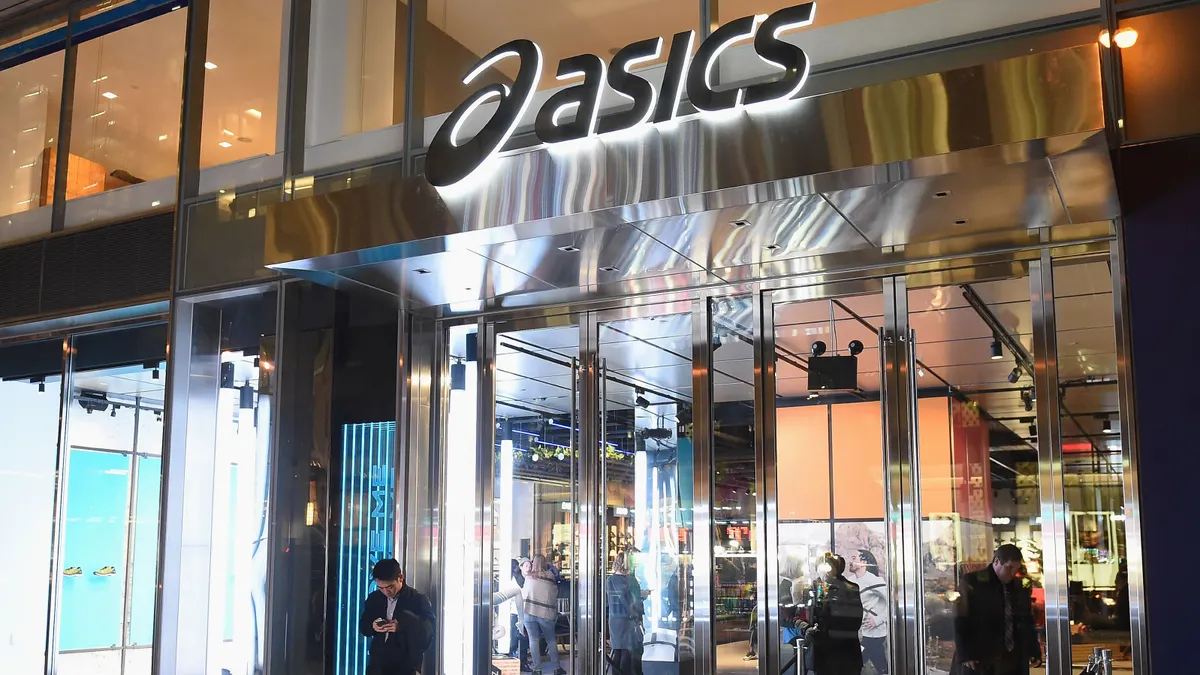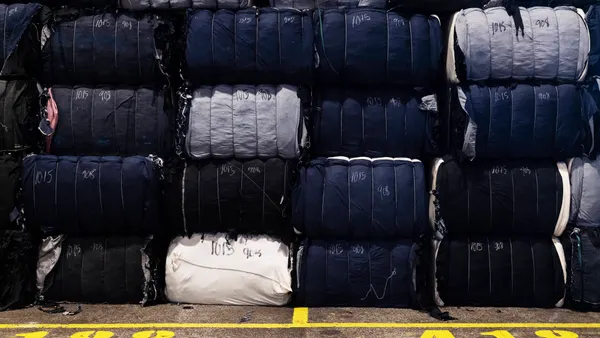Dive Brief:
- Asics is exiting the kangaroo leather business, according to a press release last week from the Animal Wellness Action and the Center for a Humane Economy.
- A staffer in the Asics sustainability department said in an email to the animal rights organization that the athleticwear company has developed an alternative to kangaroo skin and is “moving toward ending the production of products using kangaroo leather” by the end of 2025, per the release.
- The move comes on the heels of a recent announcement from rival athleticwear firm Adidas, which also announced last week that it was planning to end its use of kangaroo leather this year.
Dive Insight:
As more fashion companies stop using kangaroo skin, Wayne Pacelle, president of Animal Wellness Action and the Center for a Humane Economy, said consumer demand for kangaroo skin products is diminishing.
“With ASICS and adidas now joining the ranks of companies pledging to stop sourcing any kangaroo skins, we’ve reached a tipping point when it comes to corporate participation in the trade in wildlife parts,” Pacelle said in an email to Fashion Dive. “Companies that persist in participating in this kind of cruel commerce will be viewed by consumers as outliers, and they will be courting reputational risks, regulatory threats, and protests and lawsuits.”
The Asics statement given to Pacelle's organization added that ethical sourcing was important, and the athleticwear firm is “continually striving to enhance the functionality and quality of our products.”
Asics didn’t immediately respond to Fashion Dive’s request for comment.
Athleticwear companies including Nike, Puma, New Balance, Diadora and Sokito have made similar proclamations regarding their usage of kangaroo skin. Historically, the material has been a popular choice for high-end soccer cleats, as Sokito explained on its website last year, when it announced its decision to stop using all animal products.
“Made from the skins of kangaroos (obviously), many people considered the use of k-leather to be ‘ethical’, since it was pedalled as a by-product of the Australian Government’s population control scheme,” the website read. “Recently, however, that perception has started to change.”
Pacelle’s organization said it was now pivoting its attention to focus on Mizuno, which it said was the last major athletic shoe brand still using kangaroo leather.
“ASICS is setting an ethical standard other Japanese companies should follow. I hope Mizuno will be next,” Victoria Garafola, the Center for a Humane Economy representative in Japan, said in the release.
Animal Wellness Action also is lending its support to a U.S. bill called the Kangaroo Protection Act of 2025, which was introduced by U.S. Rep. Brian K. Fitzpatrick, R-Pa., in March. If successful, the legislation would ban commercial imports, sales and manufacturing of kangaroo products in the U.S.











